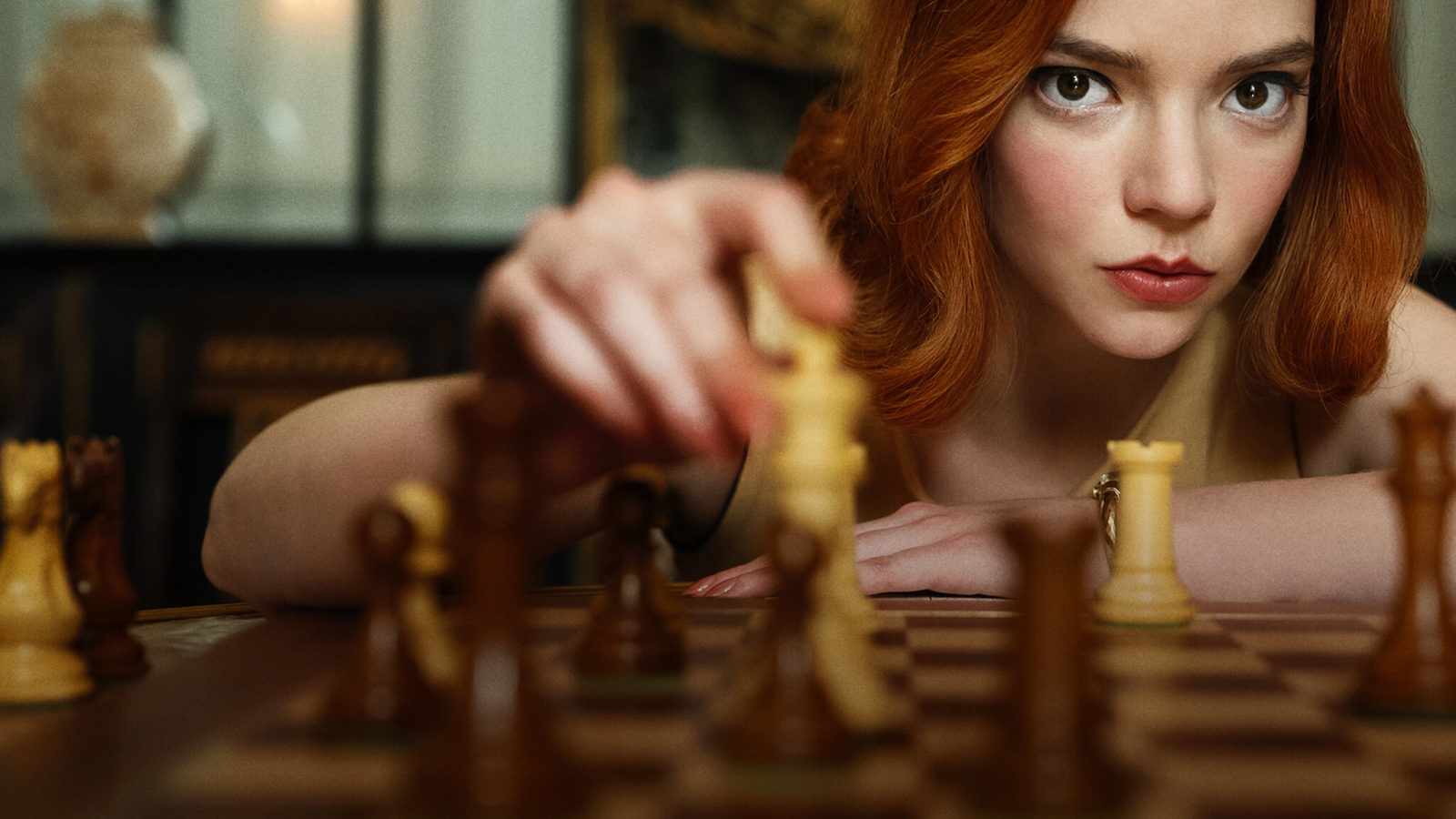The Queen’s Gambit follows Beth Harmon, an orphan turned chess prodigy during the Cold War era. Initially, a show about chess doesn’t seem particularly interesting – but in the end, I too was reaching for a chessboard! Just like chess itself, the show is always three steps ahead of the viewer, with each interaction beautifully calculated. From intricate chess matches to Beth’s ongoing battle with drug addition, the show is packed with intense scenes.
As the credits rolled on the final episode I was left wishing I could watch just one more match! And yet, I’m glad it’s a limited series. The ending wrapped up the show in a beautiful way, which was both satisfying and entertaining. My only complaint of the series was that at times I wished some of the antagonists had more depth, rather than remaining a mystery.
Reflecting on the series as a whole, there is one aspect of the show that I find myself returning to: the way it handles sexism.
In recent years there has been a steady increase in films about smart women, all with the same simple flaw: their lives would be perfect if it wasn’t for sexism. Don’t get me wrong – sexism is a very real problem which many women face on a daily basis, but it is often used as a way to disregard other issues women face.
Somehow, The Queen’s Gambit recognises this and treats sexism in a terrifyingly real way. Its brilliance lies in its subtly; the slightly prolonged looks when Beth says she plays chess. Backhanded compliments and petty remarks are littered throughout, making it relatable to a female audience.
In her first chess tournament, Beth is paired against the only other woman, seated on the sidelines, whom she has to beat in order to compete against the men. Whenever Beth is interviewed or talks to other girls they constantly ask about her gender or how she feels being surrounded by men. For them, Beth’s mere existence is a contradiction of everything they have ever learnt.
It is Beth’s adoptive mother who provides the greatest insight into the discrimination women face in this period. Her livelihood is threatened when her husband leaves, reminding us that Beth is the exception and her mother, the rule.
Throughout the series, Beth’s greatest challenge has nothing to do with sexism – her troubles are with drugs, love and money whilst sexism provides the backdrop.
Beth’s relationship with men is fascinating – those who instantly dismiss her end up cheering her on. They grow as she grows, and are left chasing her shadow. We watch as they fall in love with her while Beth simply turns back to the game at hand. They try to save her from herself and fail; the only person who can save Beth is herself.
Fundamentally, what makes this a phenomenal show is Beth. She is not a great female chess player – she is a great chess player, and that distinction is everything.

